We shall see for ourselves what are China’s intention towards us.
Julius K. Nyerere, first president of Tanzania.1
We shall not be told by others.
1 In: Christopher C. Liundi. Quotable Quotes Of Mwalimu Julius K Nyerere: Collected from Speeches and Writings (2012).
It’s October 2017, the start of the semester at the University of Dar es Salaam. I’m here as an exchange student. Kick-off event. I’m sitting in a half-filled lecture hall. The majority of the exchange students are from China. I remember being surprised – by their large numbers, by my own ignorance. Why had I assumed that the majority of exchange students were from the US and Europe and not from China?
Five and a half years later. It’s Sunday evening, Dar es Salaam again. We bump our way from pothole to pothole along the rain-washed road. Juma, my Bolt driver, has not yet made 10,000 shillings this evening, not even four euros, although I am already his third customer. That’s not even enough for gas. Not a good evening, there are no customers. Depressing silence.
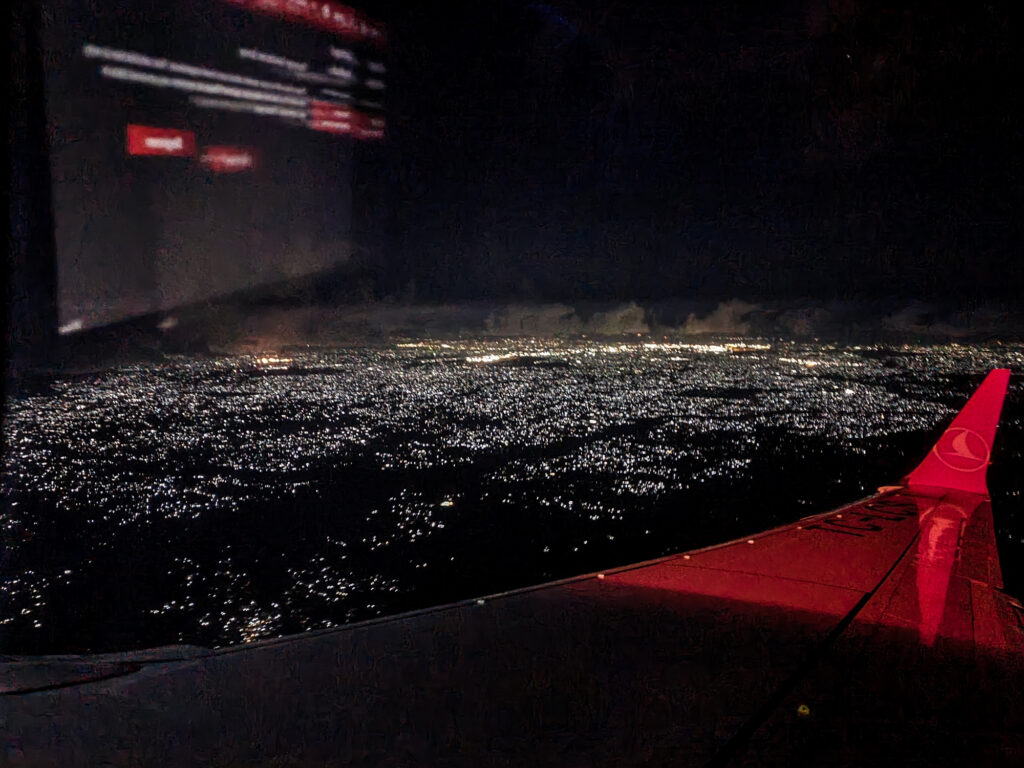
When he has finished this trip, he heads home. Evenings like this don’t pay off. Fortunately, Juma is not dependent on the Bolt job alone. Juma’s main job is as a driver for the Mwalimu Julius Nyerere Leadership School, a political training ground for the former liberation parties CCM (Tanzania), ANC (South Africa), MPLA (Angola), ZANU-PF (Zimbabwe), SWAPO (Namibia) and FRELIMO (Mozambique). It was built by the China Railway Jianchang Engineering Company and financially supported with 40 million US dollars by the Chinese Communist Party (Nantulya 2023; Club of Mozambique 2018). When the school opened a year ago, Chinese President Xi Jinping sent his congratulations in writing (Embassy of the People’s Republic of China in the United Republic of Tanzania 2022).
Juma’s old job was more lucrative, but he was asked if he could imagine working for the new management academy. Those close to him advised him to accept. The salary was lower, but the prestige was greater. And that would hopefully pay off in the long term. Keyword hope.
Chinese-Tanzanian relations
China and Tanzania have a long history of political friendship. In contrast to the timid attitude of other socialist countries such as the GDR and the Soviet Union, China recognized the United Republic of Tanzania without hesitation after it emerged from the merger of Tanganyika and Zanzibar in 1964 (M. Shangwe 2021, 7). Tanzania became one of the biggest beneficiaries of Chinese development aid in Africa (M. J. Shangwe 2017, 82). Projects such as the Tanzania-Zambia Railway, the Ubungo Farm Implements Factory, the Mbarali Rice Farm and Friendship Mill Textile were established (M. Shangwe 2021, 8, 20–21).
Today, China is Tanzania’s most important trading partner (M. J. Shangwe 2017, 17). Many here rely directly or indirectly on the Middle Kingdom. According to the Afrobarometer research network, the Chinese development model is now more popular in Tanzania than that of the USA, Russia or the United Kingdom (Afrobarometer 2021). Is it therefore the better one? Is it a better fit for the once socialist, now neoliberal Tanzania due to its crude mix of communism and capitalism? To the one party dominance democracy? To a country about which some say that the peace of the many is paid for by the disappearance of individuals? A country in which the collective is traditionally emphasized more than the individual?
Chinese presence in Tanzania
On my way from Mikocheni B to downtown Dar es Salaam, I pass a Chinese car repair shop, a Chinese fish store, a Chinese restaurant, a Chinese construction company, a Chinese household goods store and a Chinese cultural center. China is present these days. Chinese companies are raising skyscrapers into the air, shaping the infrastructure and creating jobs. Significant for a country that releases the majority of its students into unemployment after graduating from university.
Omary, another Bolt driver who takes me home one afternoon, had the same experience. He studied Kiswahili, the national language of Tanzania, to become a teacher. He completed his bachelor’s degree in 2017. Employment? Not a chance. Now he earns his living by driving bajajis, as the three-wheeled auto-rickshaws are called here, which meander through the traffic of the metropolis of eight million people, roaring like the sound of a chainsaw. Would Omary have been better off learning Chinese at the local Confucius Institute at the University of Dar es Salaam, as 12009 other students had done by the time he graduated? Could Omary then have found a job as a translator or employee in a Chinese company?
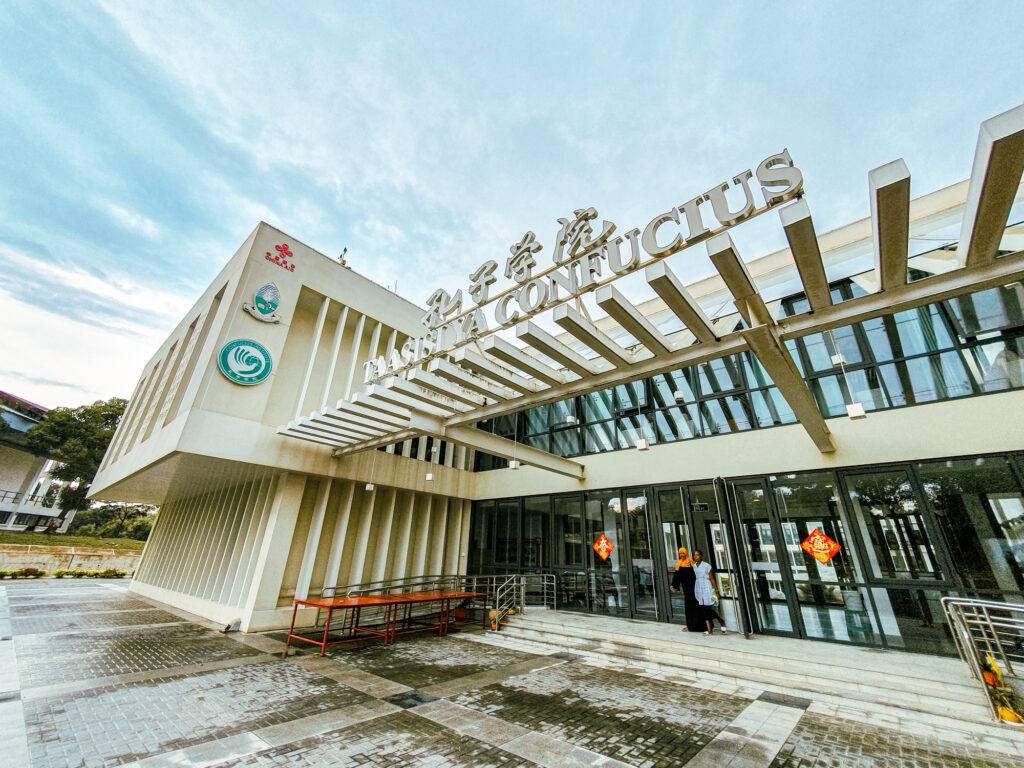
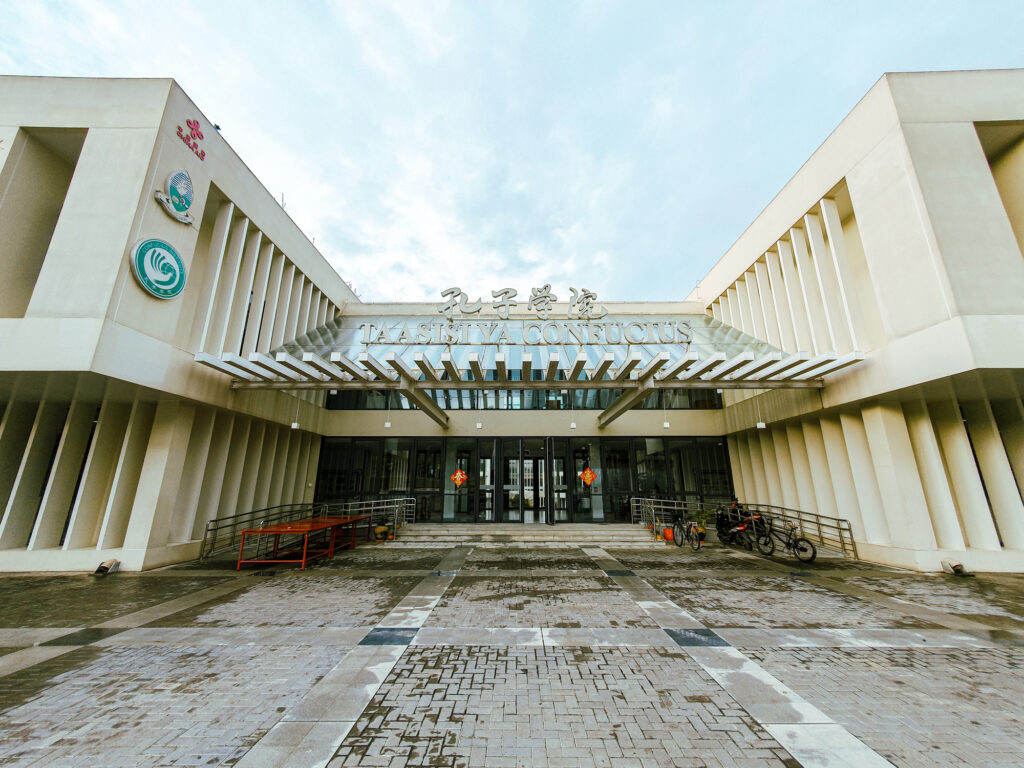
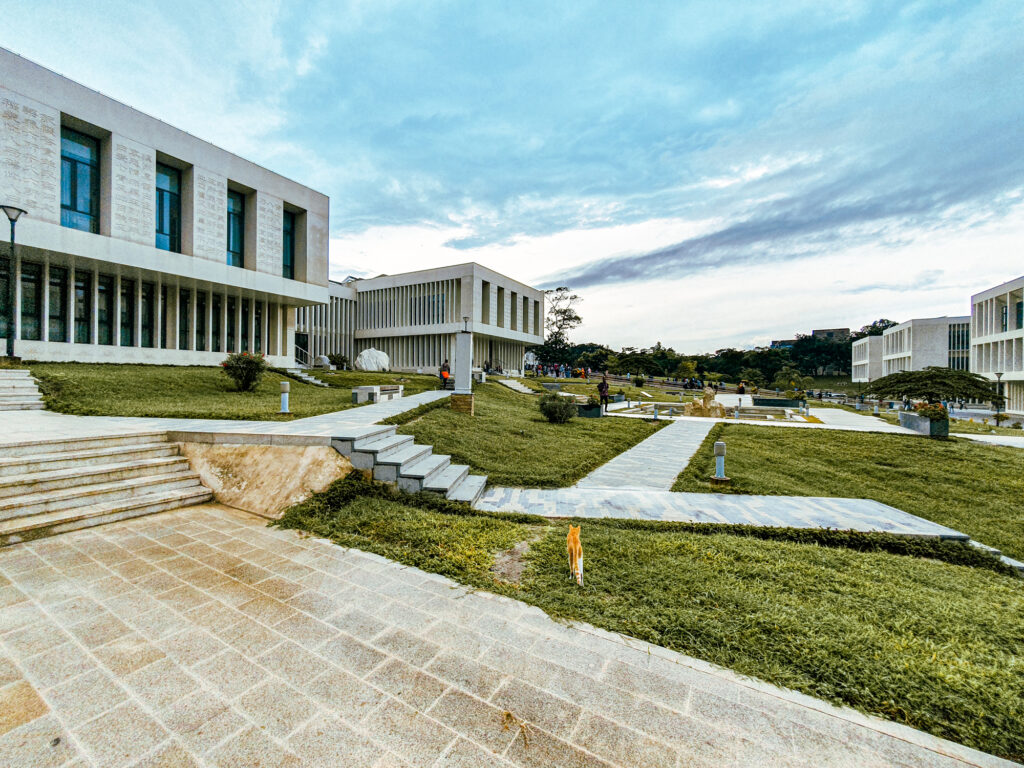
The Tanzanian Daily News recently quoted the current Chinese director of the Confucius Institute in Dar es Salaam, Professor Xiaozhen Zhang, as saying that almost all of the institute’s graduates find employment. The Confucius Institute is even said to be struggling with the increasing demand from companies for local Chinese experts (Minja 2023). Will this boom be sustainable?
A conversation with a teacher at the institute leaves me in doubt. Although he also believes that Chinese currently offers the best chance of finding a job in Tanzania, he takes a rather sober view of the future: in ten years at the latest, when Chinese is as widespread in Tanzania as English is today, the boom will subside. Even now, the daily rates for translators have fallen noticeably compared to a few years ago. So is it only a matter of time before the boom turns into a bubble that eventually bursts?
Part of the future is its uncertain character. We can project our fears or hopes into it – but we can only achieve complete certainty in the present moment with what is right now.
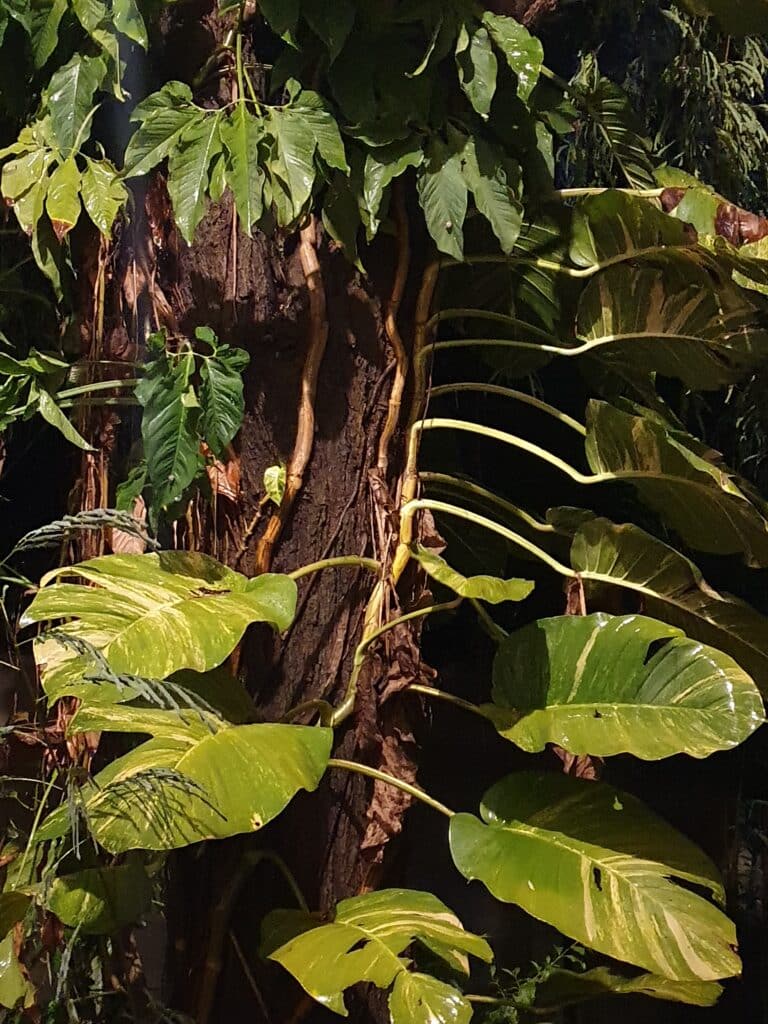
And now it’s the rainy season. The air is so saturated with moisture that it would immediately start raining again if I wrung it out with my hands. It rains every day. In a country that experienced the worst drought in 40 years last year, this means confidence. Shimmering curtains of water fall to the ground, gardens turn green, mosquitoes buzz, temperatures drop and with them the tension of the recent, never-ending dry season.
The Tanzanian economy is considered to be one of the fastest growing economies in recent years (African Development Bank 2023, 1). The warm financial shower from China is falling on fertile ground here. It seems to come freely, without political conditions: Chinese foreign policy is based on the credo of non-interference in the internal affairs of another country. This is welcomed in a country where the insistence of so-called Western countries on freedom rights is sometimes met with resistance, where discussions about the protection of queer people quickly lead to accusations of neo-colonialism.
The fragility of human rights
In mid-February, the current Tanzanian President Samia Suluhu Hassan claimed in front of students in Dodoma that human rights have their limits. Tanzanians should not be forced to do things that are not part of their customs and traditions. There were many rights that her government guaranteed: the right to life, to education, to medical care, to water and electricity, to security, freedom of movement and freedom of expression. But there were rights, she called them “these other rights”, against which the Tanzanian brothers and sisters had to be protected (Baharia TV 2023; Ikulu Tanzania 2023).
What does this mean: human rights have their limits? What does it mean when a state guarantees certain human rights but not others? Who decides how and which human rights are guaranteed and which are not? When do they violate one’s own culture and tradition and when do they not?
As a child, I loved sorting Smarties by color and picking out the ones with the colored sugar coating that fascinated me the most. It was a random game. Sometimes I started with the green ones, sometimes with the blue ones, other times with the yellow ones. When political leaders start dividing human rights into more and less suitable ones, picking out the ones that suit their political business and that their government is prepared to guarantee, they are playing exactly this game. They are then not only acting arbitrarily; they are acting irresponsibly and disregarding human rights. Human rights thus lose their meaning, their guarantor. They become a colorful collection of Smarties, an infantile game.
And yet human rights are, by definition, universal and indivisible. We don’t just see it that way in Europe. The Beninese philosopher Paulin Hountondji, for example, a heavyweight of African philosophy, also sees it this way, recognizing that the values in which human rights are rooted are universal, regardless of the respective society: for him, the basis of human rights are simply people: “‘human beings who for millenia have suffered at the hands of human beings, in all countries, and throughout all cultures'” (Dübgen und Skupien 2019, 156). So can human rights violate a culture at all?
Not really. Well, if it weren’t for the accusation of Eurocentrism and the experience of formerly colonized countries that human rights did not and do not apply to everyone. In fact, Europe prides itself on being the protector of human rights. Well, that was true, if it weren’t for the word “technically”, because even in Europe, human rights are not universal and undivided. A glance at Europe’s external borders, at the Mediterranean, at the dead bodies of drowning migrants is enough. Actually, here as elsewhere, the question arises as to who formulated human rights, how, when and in what context? And also, to what extent is postcolonial theorist Gayatri Chakravorty Spivak’s observation that human rights – like the legacy of the Enlightenment as a whole – are both poison and medicine at the same time true (de Jong 2022, 95)? And to be fair, Tanzanian President Samia Suluhu Hassan is only picking up on what the right-wing populist revolt of recent years has made a reality in Europe: Human rights have their limits. And these limits result in deaths.
With hateful regards from queerphobic US churches
I remember a conversation with a Tanzanian student. She was convinced that homosexuality was not part of Tanzanian culture. Homosexuality was neo-colonialism. I – I was speechless. It wasn’t her position that shocked me, which I already knew from other conversations, but the energy with which she presented it, the vigor of her homophobic radicalism; the incompatibility of her Christian faith and Tanzanian cultural patriotism with queer realities of life; her blatant dislike; the way she used the word weird. Her words were full of hate.
It is hatred like this that led to the brutal death of a lesbian woman in Geita, a town in north-western Tanzania, at the end of April. “She was butchered,” an acquaintance told me. Butchered – a common word that I have heard too often in connection with the death of people.
I ask myself, where does all this hatred come from? Hatred that goes so far that people hide for fear of the police and their neighbors? Hatred that finds its way into political bodies, that is openly expressed, like by Mary Chatandas, the leader of the women’s wing of the Tanzanian ruling party, who recently called for the castration of gays (Kaledzi 2023).
“It is interesting that these politicians ignore the fact that it is actually the harsh anti-homosexuality laws – not homosexuality – that were imposed on us by the colonial government,” writes Tanzanian journalist Sammy Awami in an article for the BBC (Awami 2023).
I wonder how much the queerphobic discourse from the US through evangelical and other radical Christian free churches is currently spilling over into Tanzania, fueling the phobic mood, the hatred? After all, according to OpenDemocracy, 54 million US dollars have flowed from the pockets of 20 right-wing US Christian groups to Africa since 2007. 20 right-wing Christian groups that are notorious for fighting against LGBTIQ rights and access to safe abortions, contraception and comprehensive sex education (Namubiru und Wepukhulu 2020). Is this Christian neo-colonialism, neo-missionarization or just extreme religious zealotry?
Kristen Cheney from the University of Victoria has a clear answer to these questions. “The U.S. religious right has succeeded in co-opting African spiritualism and homophobia for their own political purposes (Cheney 2012, 92),” she writes. Conservative US evangelicalism is therefore the real neocolonialism, not homosexuality (Cheney 2012, 92).
We do not need more European arrogance
One problem, perhaps the problem par excellence, remains: In the past, Europe always thought it knew everything better, consistently acted from above, first sending its missionaries with the “right” religion, then its colonial officials. And this attitude, this Eurocentric misconception, still prevails. Today, when Emmanuel Macron demands that Europe should be a world power alongside China and the USA, he is perpetuating the same arrogance that has caused suffering, oppression and ultimately the rejection of Europe and European values since the beginning of European imperialism (Rankin 2023).
It may be true that Europe needs to act more independently and free itself from traditional loyalties. But it certainly does not need to strive to become a third world power. Europe would do well to be more remorseful, because it is precisely this persistent arrogance that is causing Europe to lose its credibility in the Global South. This is how the last European card is being gambled away. Who believes in a partnership of equals with a world power?
We don’t need more world powers – we need a world in which power is distributed more fairly globally. We need a world in which our own achievements and those of our political partners, as well as those of third parties, are measured against the ethical code of human rights. Europe should work towards this, even if it means giving up its own privileges and curtailing its own power.
Europe does not deserve a special role; we Europeans must finally understand this. It is therefore correct when Olaf Scholz states in front of the European Parliament: “Those who nostalgically pursue the dream of European world power, who serve national great power fantasies, are stuck in the past“ (Scholz 2023). Bitterly, however, Scholz’s initiative to bring Kenyan specialists to Germany was not met with undivided joy in Kenya itself. Critical voices spoke of German imperialism, of the expansion of Europe’s external borders into the interior of Africa, of the withdrawal of urgently needed skilled workers (Communist Party of Kenya [@CommunistsKe] 2023). What was that again about Scholz’s “partnership that leaves behind the Eurocentric view of past decades” and “not only asserts eye level, but establishes it” (Scholz 2023)?
Can Fortress Europe be a friend to Africa?
This may sound heretical, but the question of whether Germany is once again failing at the upright embodiment of political friendship, which Europe as a whole has failed at so far, is valid and appropriate. After all, it is this upright embodiment of political friendship that China has achieved in Tanzania and other parts of Africa that has ensured that China is taken seriously today.
“We desire friendship with these non-Western nations as well as with Western states, and on the same basis of mutual non-interference with internal affairs,” the then Tanzanian President Julius K. Nyerere announced in Beijing in 1965 (Liundi 2012, Kap. On Foreign Relations). “We wish to be friendly with all and we will never allow our friends to choose our enemies for us (Liundi 2012, Kap. On Foreign Relations).” Nyerere is considered the father of the Tanzanian nation and his political legacy extends far beyond his own country’s borders. Although they come from another time, these words seem more relevant than ever; it is time for Europe to recognize their validity. They apply not only to Tanzania, but also elsewhere.
A moral dilemma, however, cannot be solved so easily: How to stand up for the protection of queer people and the unbroken recognition of all human rights without interfering in the internal affairs of a country at the same time? Perhaps, as a first step, human rights in Europe should apply to everyone, including those who are not European citizens themselves, including those who make their way to Europe “irregularly”. Once Fortress Europe becomes a genuine fortress of human rights, there is hope that Europe will regain credibility, perhaps even political influence – without any sanctions or snootiness. The second step will then become apparent, because part of the future is its uncertain character.
Personal (dis-)continutities

I am once again waiting for a bajaji. I spend a lot of time on their back seats these days, driving from interview to interview, talking to artists and cultural workers, teachers and students, trying to understand the influence of Chinese language and cultural institutes on the local art and culture scene, all in the name of research. When Madinda, the Bajaji driver – this time Uber instead of Bolt – hears me speaking Kiswahili, he is delighted and laughs heartily. “Wengine hawajui kabisa”, he comments on my language skills. Others wouldn’t even understand a little Kiswahili.
In some way, I am also continuing a colonial continuity: I am white, male, European. I do research on the “others”. I am a doctoral student at an institute whose roots can be traced back to a seminary founded in 1887 that trained German colonial officials – from the very beginning also in Kiswahili.
Oh Europe, what haven’t you broken, why are you so difficult? I’m ashamed of your legacy. What will become of you? What about your future?
About the author
Daniel Kossmann is an area studies scholar with a focus on East Africa and a passion for the creative and artistic. In his work he brings together regional expertise and artistic passion. He holds a B.A. in Areas Studies Asia/Africa and a M.A. in African Studies from Humboldt-Universität zu Berlin. Daniel spend a couple of years living, working and studying in East Africa, mostly in Nairobi (Kenya), Dar es Salaam (Tanzania) and Kigali (Rwanda). As a scholar, he is not only interested in the production of knowledge, but also in how this knowledge can best be passed on and disseminated, and has therefore been actively involved in science communication.
Bibliography
African Development Bank. 2023. African Economic Outlook 2023: Mobilizing Private Sector Financing for Climate and Green Growth in Africa. African Development Bank Group. https://www.afdb.org/en/documents/african-economic-outlook-2023.
Afrobarometer. 2021. „In Tanzania, China Outranks U.S. as Positive Influence and Development Model, Afrobarometer Survey Shows“. https://www.afrobarometer.org/articles/tanzania-china-outranks-us-positive-influence-and-development-model-afrobarometer-survey-shows/.
Awami, Sammy. 2023. „Viewpoint: East Africa’s Battle over Culture and Homosexuality“. BBC News, 11. April 2023, Abschn. Africa. https://www.bbc.com/news/world-africa-65239117.
Baharia TV, Reg. 2023. Hatimae Rais Samia akemea ushoga asema hii sio haki kama wanavyosema mataifa hayo. https://www.youtube.com/watch?v=cYqFYoedACA.
Cheney, Kristen. 2012. „Locating Neocolonialism, ”Tradition,” and Human Rights in Uganda’s ”Gay Death Penalty”“. African Studies Review 55 (2): 77–95.
Club of Mozambique. 2018. „African Freedom Parties [Mozambique’s Frelimo Included] Team up in US$45M Leadership Venture Supported by China“. Mozambique. 19. Juli 2018. https://clubofmozambique.com/news/african-freedom-parties-team-up-in-new-leadership-college-venture/.
Communist Party of Kenya [@CommunistsKe]. 2023. „1/ Chancellor Scholz Is Not Welcome in Kenya. The Recent Deal Signed by President Ruto and German Chancellor Scholz Is Nothing but a Betrayal of Our Country’s Sovereignty and an Invitation to German Imperialism. It Is a Dirty Deal That Will Lead to the Auctioning off of Workers Https://T.Co/eASp2XbvMb“. Tweet. Twitter. https://twitter.com/CommunistsKe/status/1656528603851390977.
Embassy of the People’s Republic of China in the United Republic of Tanzania. 2022. „Xi congratulates Julius Nyerere leadership school on inauguration“. 24. Februar 2022. http://tz.china-embassy.gov.cn/eng/sgdt/202202/t20220224_10645072.htm.
Ikulu Tanzania, Reg. 2023. Rais Samia Suluhu Hassan akizungumza na wawikilishi wa TAHLISO na ZAHLIFE – Ikulu, Chamwino, Dodoma. https://www.youtube.com/watch?v=Af7WclKK92k.
Jong, Sara de. 2022. „Writing rights: suturing Spivak’s postcolonial and de Sousa Santos’ decolonial thought“. Postcolonial Studies 25 (1): 89–107. https://doi.org/10.1080/13688790.2022.2030596.
Kaledzi, Isaac. 2023. „East Africa’s LGBTQ Community under Siege“. Dw.Com, 21. März 2023. https://www.dw.com/en/east-africas-lgbtq-community-under-siege/a-65068984.
Liundi, Christopher C. 2012. Quotable Quotes of Mwalimu Julius K. Nyerere: Collected from Speeches and Writings. Dar es Salaam, Tanzania: Mkuki na Nyota Publishers.
Minja, Dativa. 2023. „UDSM: Demands for Local Chinese Language Experts High – Daily News“. Daily News, 26. April 2023. https://dailynews.co.tz/udsm-demands-for-local-chinese-language-experts-high/, https://dailynews.co.tz/udsm-demands-for-local-chinese-language-experts-high/.
Namubiru, Lydia, und Khatondi Soita Wepukhulu. 2020. „Exclusive: US Christian Right Pours More than $50m into Africa“. openDemocracy, 29. Oktober 2020. https://www.opendemocracy.net/en/5050/africa-us-christian-right-50m/.
Nantulya, Paul. 2023. „China’s First Political School in Africa“. Africa Center for Strategic Studies (blog). 11. Juli 2023. https://africacenter.org/spotlight/china-first-political-school-africa/.
Rankin, Jennifer. 2023. „Macron Sparks Anger by Saying Europe Should Not Be ‘Vassal’ in US-China Clash“. The Guardian, 10. April 2023, Abschn. World news. https://www.theguardian.com/world/2023/apr/10/emmanuel-macron-sparks-anger-europe-vassal-us-china-clash.
Scholz, Olaf. 2023. „Rede von Bundeskanzler Scholz im Rahmen der Diskussionsreihe ‚This is Europe‘ im Europäischen Parlament am 9. Mai 2023 in Straßburg“. Die Bundesregierung. 5. September 2023. https://www.bundesregierung.de/breg-de/aktuelles/rede-von-bundeskanzler-scholz-im-rahmen-der-diskussionsreihe-this-is-europe-im-europaeischen-parlament-am-9-mai-2023-in-strassburg-2189408.
Shangwe, Muhidin. 2021. „From Friends to Partners? The Changing Nature of Sino-Tanzanian Relations“. Notes de l’Ifri, September, 5–28.
Shangwe, Muhidin J. 2017. „China’s Soft Power in Tanzania: Opportunities and Challenges“. China Quarterly of International Strategic Studies 03 (01): 79–100. https://doi.org/10.1142/S2377740017500026.
